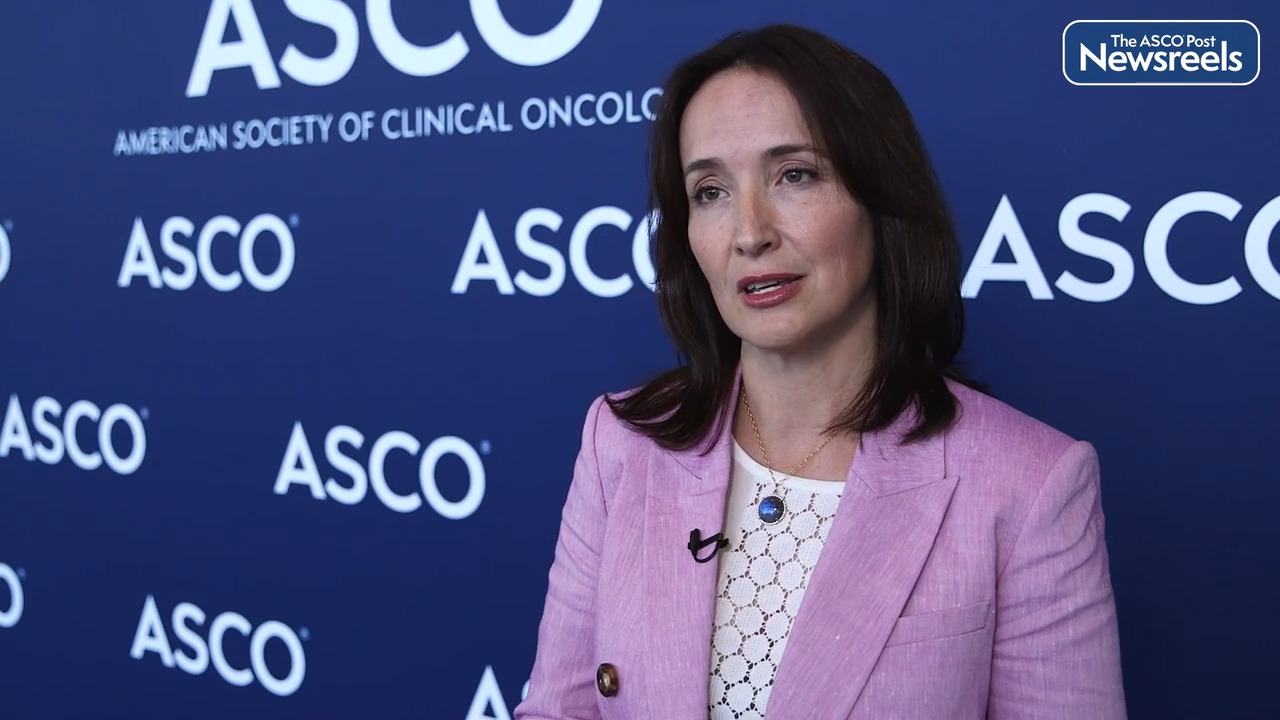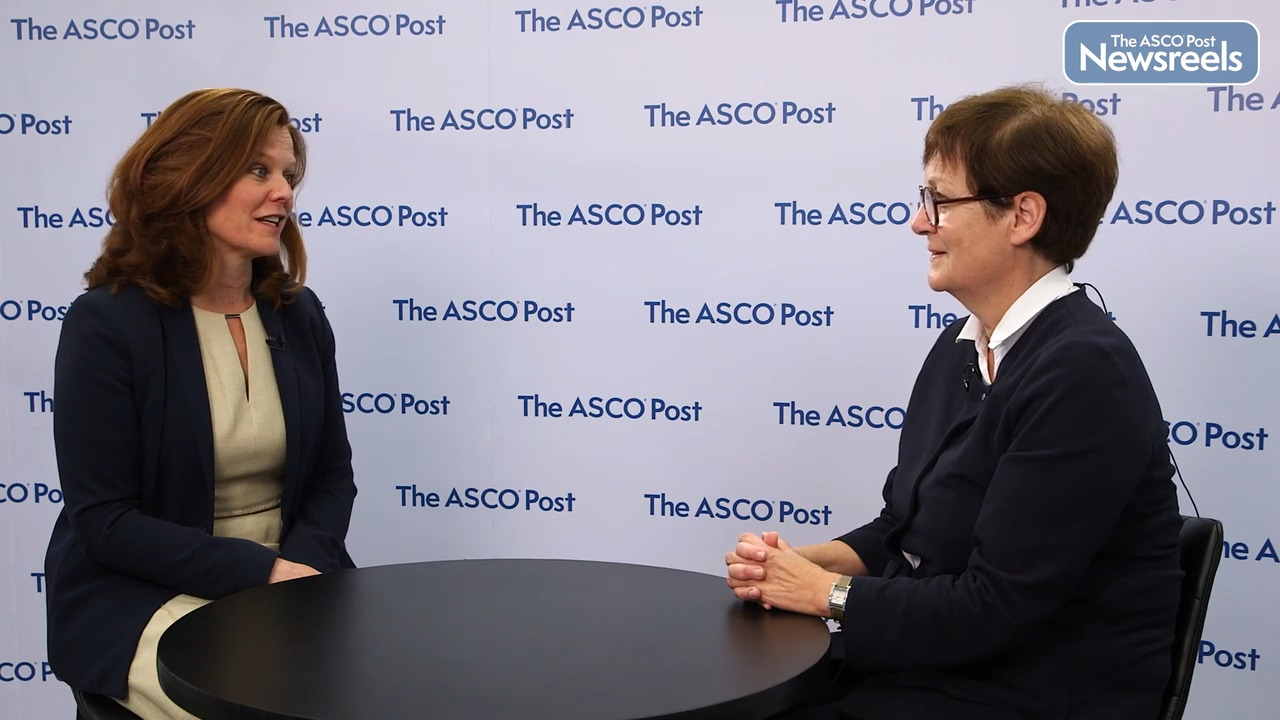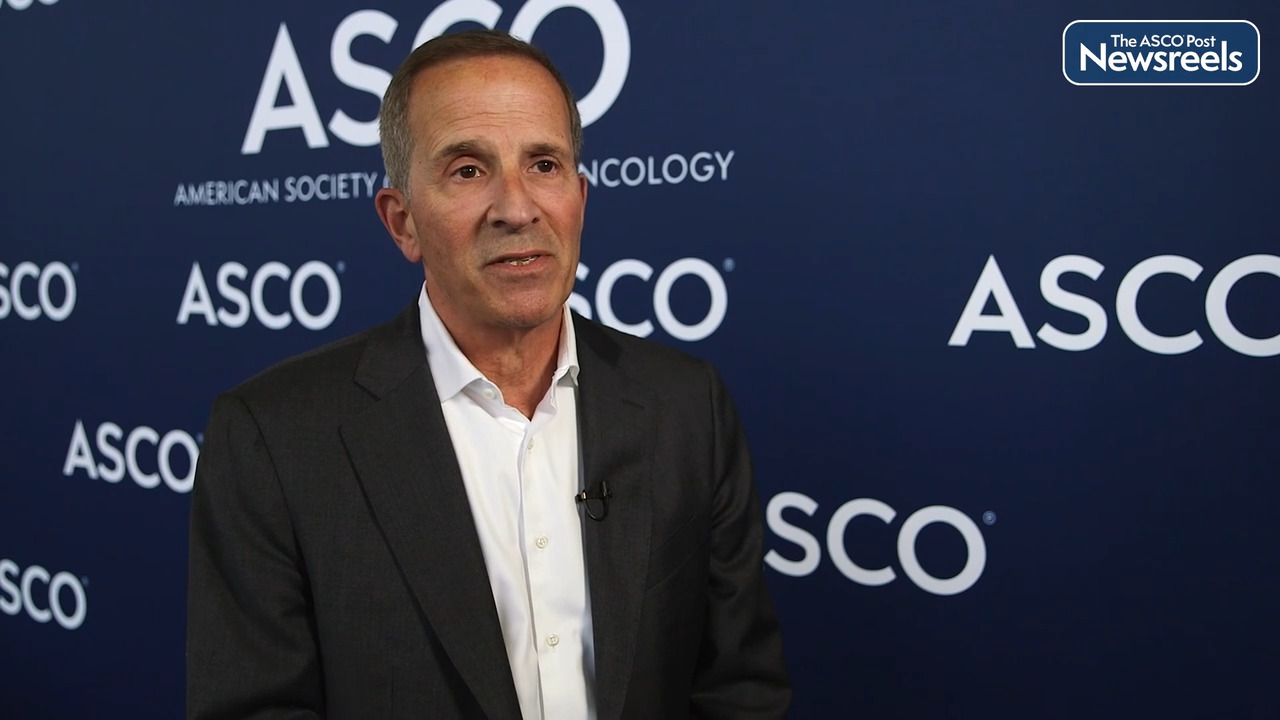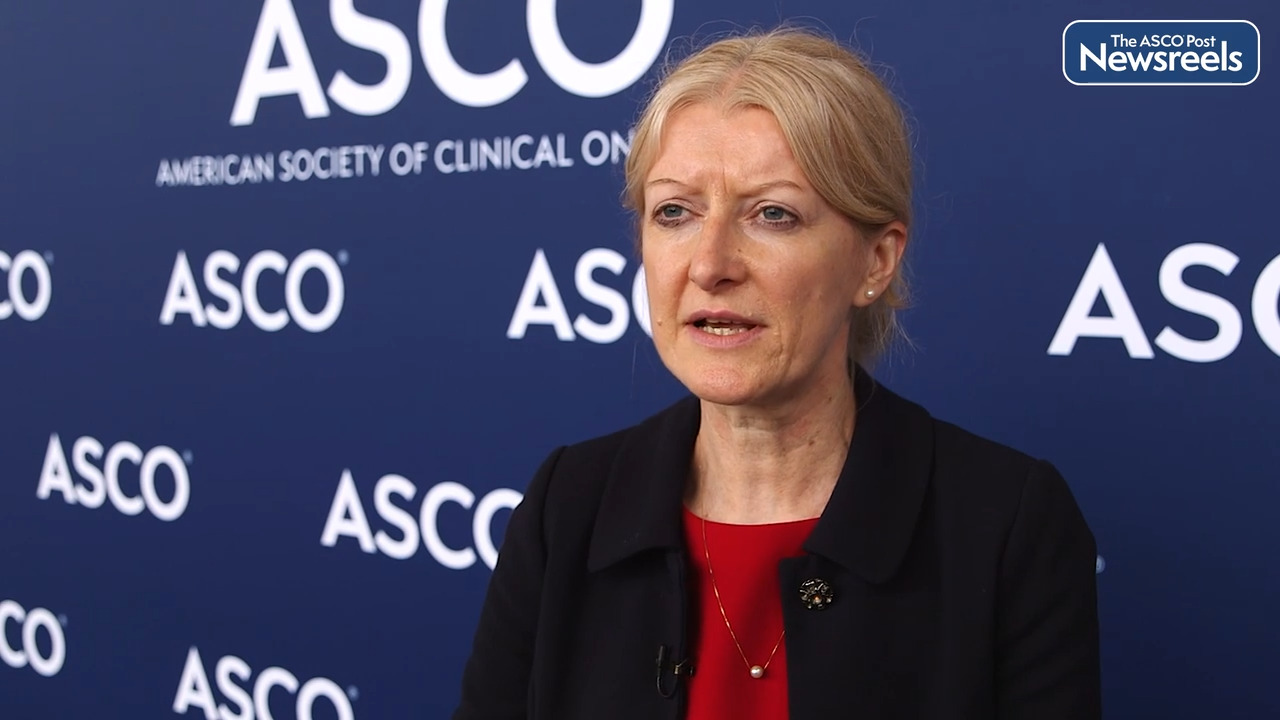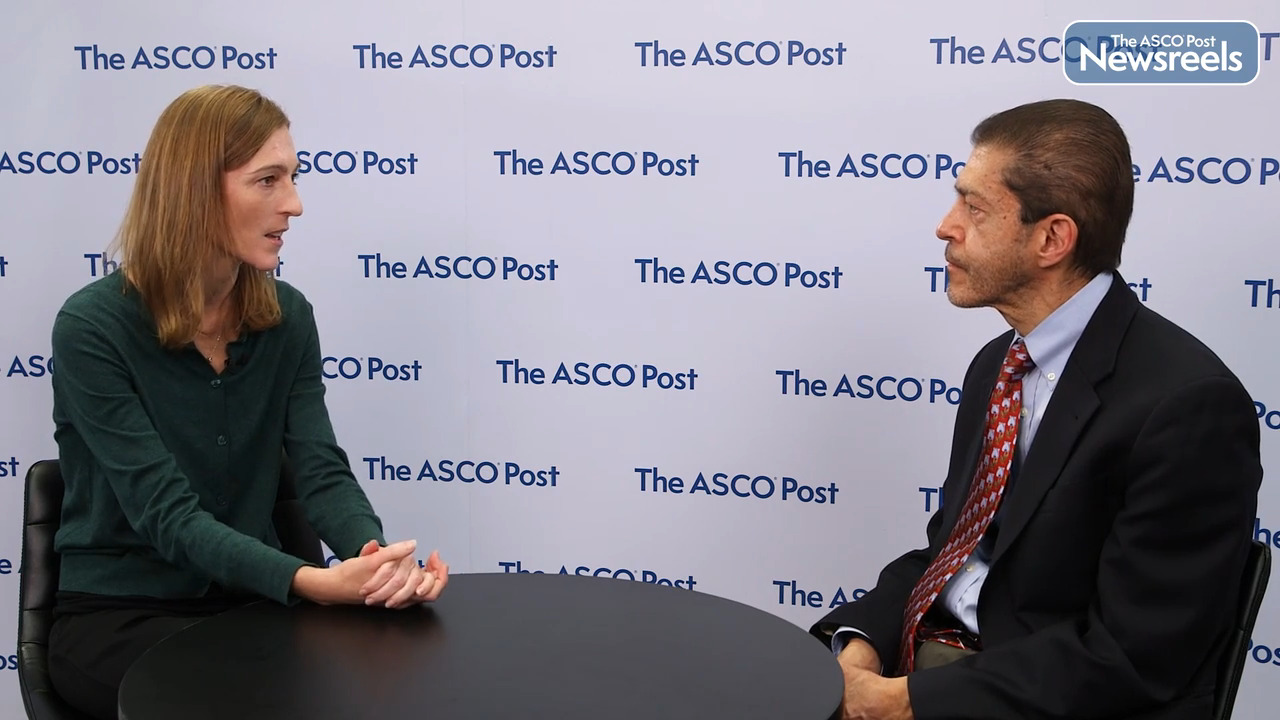Tara B. Sanft, MD, on How Diet and Exercise May Affect Completion of Chemotherapy for Breast Cancer
2022 ASCO Annual Meeting
Tara B. Sanft, MD, of Yale University, discusses the results of the LEANer study (Lifestyle, Exercise, and Nutrition Early After Diagnosis) in women with breast cancer. It showed that patients with newly diagnosed disease who were just starting chemotherapy could improve physical activity and diet quality. While both groups had high rates of treatment completion, women in the intervention who exercised at or above the recommended levels did better in terms of treatment completion, with fewer dose reductions and delays (Abstract 12007).
Transcript
Disclaimer: This video transcript has not been proofread or edited and may contain errors.
We know completing chemotherapy as prescribed is important for cancer outcomes. We also know that adopting healthy diet and exercise is important, both for cancer prevention and, in certain cancers, can improve cancer-related survival. The healthy diet and exercise guidelines include eating a predominantly plant-based diet and exercising with moderate intensity exercise at least 150 minutes per week, and performing two strength training sessions per week. Our study, the Lifestyle, Exercise, and Nutrition Study, randomized women who were not meeting these guidelines to a healthy diet and exercise intervention based on the Diabetes Prevention Protocol and adapted using the cancer-related guidelines as well versus usual care, which is referral to our survivorship clinic and dieticians and exercise programs at request by the patient. Our primary outcome was looking at the relative dose intensity, or the actual amount of chemotherapy received compared to that which was prescribed. The intervention group received a year-long intervention of 16 sessions administered by a registered dietician who was certified, specialized in oncology, and also had exercise counseling training. The control group were followed at baseline post-chemotherapy. What we found was that both groups completed chemotherapy at very high rates, with both groups approaching about 93% completion rates. This is higher than what we had found in the literature before. We also found that the number of dose delays and reductions were similar between the two groups. When we looked at the intervention group, in particular, and we looked at if they were meeting the actual recommendations, that is 150 minutes per week and a high consumption of fruits and vegetables, we found that women who were able to meet these guidelines or exceeded them, did have higher completion rates compared to those who didn't quite make those guidelines. So in summary, the women who made the highest number of changes or adhered the best did have better relative dose intensity and fewer dose reductions and delays. But when we took the entire intervention group and compared them to usual care, we did not find a statistically significant difference. In summary, both groups completed their chemotherapy as prescribed most of the time, and the intervention group significantly improved both their diet and physical activity during the course of the intervention. Those who were able to adopt the exercise and diet recommendations the best did have significant improvements in their completion rates and fewer dose reductions and delays compared to those who didn't adopt it as well.
Related Videos
The ASCO Post Staff
Pamela L. Kunz, MD, of the Yale University School of Medicine, discusses new findings from the ECOG-ACRIN E2211 trial, which showed the longest progression-free survival and highest response rates with temozolomide plus capecitabine reported to date for patients with pancreatic neuroendocrine tumors. The presence of a deficiency of MGMT, the drug-resistance gene, was associated with greater odds of an objective response (Abstract 4004).
The ASCO Post Staff
Ann H. Partridge, MD, MPH, of Dana-Farber Cancer Institute, and Véronique Diéras, MD, of the Centre Eugène Marquis, discuss the many challenges posed by next-generation antibody-drug conjugates (ADCs). They include side effects such as hematotoxicity, gastrointestinal toxicities, and interstitial lung disease; tumor targeting and payload release; drug resistance; and the urgent need to understand ADCs’ mechanisms of action to better sequence and combine drugs.
The ASCO Post Staff
Neal D. Shore, MD, of the Carolina Urologic Research Center, discusses his study findings, showing that germline genetic testing influenced care for patients with prostate cancer. Men whose genetic test was positive for a pathogenic germline variant received more recommendations for changes to follow-up and treatment, and for testing and counseling of relatives, than did patients with negative or uncertain test results (Abstract 10500).
The ASCO Post Staff
Mairéad G. McNamara, PhD, MBBCh, of The Christie NHS Foundation Trust, discusses phase II findings of the NET-02 trial, which explored an unmet need in the second-line treatment of patients with progressive, poorly differentiated extrapulmonary neuroendocrine carcinoma. In the trial, the combination of liposomal irinotecan, fluorouracil, and folinic acid, but not docetaxel, met the primary endpoint of 6-month progression-free survival rate (Abstract 4005).
The ASCO Post Staff
Courtney D. DiNardo, MD, MSCE, of The University of Texas MD Anderson Cancer Center, and Jorge E. Cortes, MD, of Georgia Cancer Center at Augusta University, discuss phase III results from the ASCEMBL trial, which showed that after more than 2 years of follow-up, asciminib continued to yield superior efficacy and better safety and tolerability vs bosutinib in patients with chronic myeloid leukemia (CML) in chronic phase. These results continue to support the use of this kinase inhibitor as a new CML therapy, says Dr. Cortes, with the potential to transform the standard of care (Abstract 7004).
